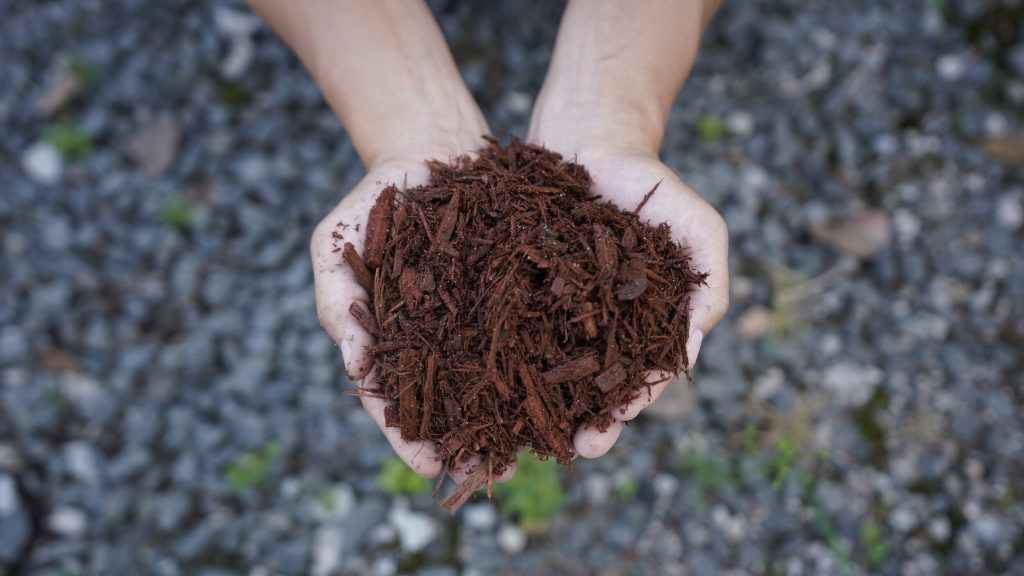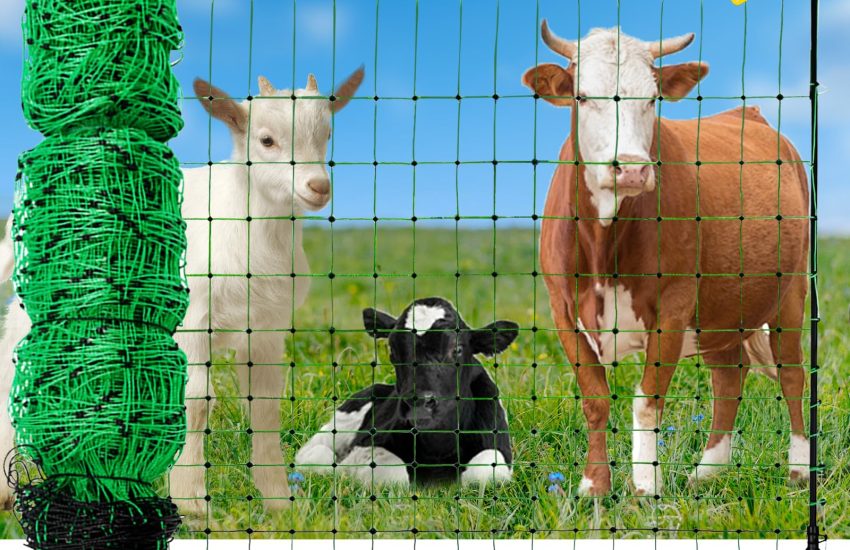Best Mulches for Native Plant Beds: A Comprehensive Guide
We independently select all products and services. If you click through links we provide, Plant Native may earn a commission with no extra cost to you.
Last updated: January 18, 2026

Native plant beds are a great way to bring natural beauty to your backyard while supporting local ecosystems. However, maintaining these beds can be a challenge, especially when it comes to weed control and moisture retention. This is where mulch comes in – a layer of organic material that covers the soil and provides a range of benefits for your plants.
When it comes to native plant beds, choosing the right mulch is crucial. Not all mulches are created equal, and some can even harm your plants or the environment. In this article, we’ll take a look at the best mulches for native plant beds and what to look for when making a purchase.
One of the most important factors to consider when choosing a mulch is its origin. Many commercial mulches are made from non-native plant species or even treated wood, which can introduce harmful chemicals or invasive plants to your garden. For native plant beds, it’s best to choose a mulch made from locally-sourced, organic materials.
Another factor to consider is the texture of the mulch. Coarse mulches like wood chips or bark can be effective at suppressing weeds and retaining moisture, but they can also be difficult to work with and may not break down quickly enough to provide nutrients to your plants. Finer mulches like shredded leaves or straw can be easier to handle and provide more immediate benefits to your soil.
In the next section, we’ll dive into some of the best mulches for native plant beds and what makes them stand out. By the end of this article, you’ll have a better understanding of how to choose the right mulch for your garden and ensure that your native plants thrive.
Best Mulches for Native Plant Beds
As avid gardeners, we understand the importance of mulching in maintaining healthy native plant beds. Mulching not only helps retain moisture in the soil but also suppresses weeds and regulates soil temperature. However, choosing the right mulch can be overwhelming with so many options available in the market. That’s why we’ve compiled a list of the best mulches for native plant beds based on their effectiveness, sustainability, and affordability. Whether you’re a seasoned gardener or a beginner, our list has got you covered.
Our top pick
- The long needles of the Longleaf pine straw, approximately 14 inches, make it the preferred choice of landscapers, developers, homeowners, and golf course superintendents.
- The roll is easy to unroll and work around existing landscape plants, and the lightweight roll and delivery are convenient.
- It is a natural and biodegradable alternative to other mulches.
Cons
- It may not be suitable for areas with high winds as it may blow around.
- It may not be the most cost-effective option for large areas.
- It is only available in one color.
The thickness of the layer was just right for our needs, and it covered up to 125 square feet. However, we found that it stays put in moderate wind conditions. When you weigh all the factors, this one rises above the rest.
Best for containers
- Lightens heavy potting mixes and native soil
- Enriched with Miracle-Gro Plant Food
- Helps promote strong root development
Cons
- Not organic
- Can be expensive compared to other types of mulch
- Needs to be moistened before use
We’ve used Miracle-Gro Sphagnum Peat Moss in both container and in-ground plants, and we’ve found that it does a great job of lightening heavy soil and promoting strong root development. One thing to keep in mind is that this mulch is not organic, so if you’re looking for an all-natural option, this might not be the best choice for you. If you’re gardening in containers, this one takes to it naturally.
Best for gardens
- This compost blend contains dehydrated cow manure with aged forest products that help improve poor soil conditions and promote better plant growth.
- It is an organic blend that can be used for everything you grow, from vegetables and flowers to trees and shrubs.
- The Espoma Cow Manure Compost Blend improves the soil’s moisture holding capacity and aeration, leading to healthier plants.
Cons
- The smell of the product may be unpleasant for some users.
- The bag size may not be sufficient for larger gardens.
- The product may attract unwanted pests if not used properly.
We recommend checking the label for specific instructions on usage. Overall, we highly recommend the Espoma Organic Cow Manure Compost Blend for anyone looking for an all-natural soil amendment for their garden. For this particular need, it’s the clear frontrunner.
Best lightweight option
- Fjiro Coco is 100% organic and sustainable, made from a natural byproduct of the coconut industry.
- It has a high water-holding capacity, good drainage, and neutral pH, making it an excellent soil amendment or potting mix ingredient.
- Fjiro Coco is lightweight and easy to handle, making it convenient to use in pots and containers.
Cons
- If you don’t need all of it at once, you’ll need a big bag of some sort to store it in.
- It can be hard to use if you’re not familiar with how to break up the brick with water.
- Some users have reported that it can be difficult to find in stores.
We’ve also found that it retains water well, which is important for our dry climate. We also recommend combining it with soil concentrate(s), plant food, potting mix, and nutrients to create the right growing conditions for your plants. Its portability makes it a no-brainer for on-the-go use.
Best iron option
- The 2-pack of 20 quart bags provides plenty of soil for your planting bed or container garden.
- The blend is specially formulated for acid-loving plants, helping to revitalize sandy or clay-rich soils for better growing in less-ideal climates.
- The all-natural ingredients make for a safe, nutrient-rich growing medium.
Cons
- Some customers have reported finding bugs or spiders in the soil.
- The pH level of the soil may need to be adjusted for some plants, as some customers have reported a higher pH level than expected.
- The price point may be higher than other potting soil options on the market.
Overall, we recommend the Coast of Maine Organic Natural Garden Compost Potting Planting Soil Blend for anyone looking for a natural and organic option for their acid-loving plants. However, be aware of the potential for bugs in the soil and the need to adjust pH levels for some plants. For this particular need, it’s the clear frontrunner.
Best organic option
- Helps loosen heavy potting soils and improves aeration and moisture retention
- 100% peat moss with no additives, making it perfect for organic gardening
- Can be blended with perlite for a custom soilless mix
Cons
- Only comes in an 8-quart size, which may not be enough for larger gardening projects
- Can be a bit messy to work with
- May not be the most cost-effective option for those on a tight budget
Our plants seemed to thrive in the enriched soil, and we noticed a significant improvement in root growth. Overall, if you’re looking for an organic solution to improve your soil’s quality and promote root growth, we recommend giving Espoma Organic Peat Moss a try. For this particular need, it’s the clear frontrunner.
Best for raised beds
- This planting mix expands up to 3X when water is added, which means you’ll get more soil for your money.
- Miracle-Gro Expand ‘N Gro Concentrated Planting Mix holds up to 50% more water than basic potting soil, which means you won’t have to water your plants as often.
- This planting mix creates up to 90% more air space in native soil, which allows your plant’s roots to breathe and grow more easily.
Cons
- Some users have reported finding small pieces of white plastic in the soil, which can be a bit of a nuisance.
- The “expand” part of this planting mix hasn’t worked as well for some users, who have found that it doesn’t expand as much as they expected.
- While this product is convenient and lightweight, it may not be the most cost-effective option for those who need a lot of planting mix.
In our experience, Miracle-Gro Expand ‘N Gro Concentrated Planting Mix is a great option for those who want a versatile planting mix that can be used in various settings. Overall, we think this is a solid option for those who want a convenient and versatile planting mix. It’s a well-earned pick that lives up to the promise.
Buying Guide
When choosing the best mulch for your native plant beds, there are a few features to consider to ensure the health and success of your plants. Here are some factors to keep in mind:
Material
Mulch can be made from a variety of materials, including wood chips, straw, leaves, and grass clippings. Each material has its own benefits and drawbacks, so it’s important to choose one that fits your specific needs. For example, wood chips are long-lasting and provide good insulation, while grass clippings break down quickly and add nutrients to the soil.
Texture
The texture of the mulch can also impact its effectiveness. Finer mulch will break down more quickly and provide more nutrients to the soil, while coarser mulch will last longer and provide better insulation.
Color
While the color of the mulch may seem like a minor detail, it can actually have an impact on your plants. Dark-colored mulch will absorb more heat, which can be beneficial in cooler climates, while lighter-colored mulch will reflect more heat, which can be helpful in hotter climates.
Depth
The depth of the mulch layer is also important to consider. A layer that is too thin will not provide adequate insulation or weed control, while a layer that is too thick can suffocate the roots of your plants. As a general rule, aim for a layer that is 2-3 inches deep.
By taking these factors into consideration, you can choose the best mulch for your native plant beds and ensure the health and success of your plants.









